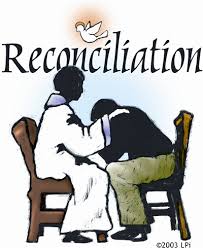A Call to Look Inside
Hey there! Let’s chat about something really special in the Christian life, especially during Lent. As followers of Jesus, we’re encouraged to take a good, hard look at ourselves and say sorry for the things we’ve done wrong. The more we really mean it when we repent, the more our hearts change for the better, and the stronger we decide to do things differently.
We Christians don’t have to be shy about admitting our mistakes to God and asking for His mercy. He’s always on our side, ready to take our sadness and give us a fresh start through Jesus.
A Handy Tool from the Church
To help us with this, the Church gives us a cool tool called the Act of Contrition. It’s like a treasure in our spiritual toolbox! A lot of people know it from Confession, but honestly, it’s something we should pray way more often—like every day.
This prayer is super easy to get into, like dipping your toes in a kiddie pool, but it’s also got some deep stuff to explore, like an ocean. Our job is to dive in deeper as we grow closer to God.
Step One: Learn It, Love It
The first thing to do is learn the Act of Contrition, memorize it, and pray it straight from the heart. I know memorizing prayers isn’t as popular as it used to be, but the Church still thinks it’s a great idea. Check this out from the Catechism:
“The catechesis of children, young people, and adults aims at teaching them to meditate on The Word of God in personal prayer, practicing it in liturgical prayer, and internalizing it at all times in order to bear fruit in a new life. Catechesis is also a time for the discernment and education of popular piety. The memorization of basic prayers offers an essential support to the life of prayer, but it is important to help learners savor their meaning” (2688).
Sure, we’ve got to balance memorizing with really feeling what the words mean. And the best way to start is by learning them first.
Bringing Back a Good Habit
When I meet someone who doesn’t know the Act of Contrition, I’ll ask, “What do you pray at night before bed?” A lot of times, they stop and think because the habit of checking in with ourselves and praying this prayer at night isn’t as common anymore. But I say, let’s bring it back—Lent is the perfect time to do it!
Once we’ve got the prayer down, we can start unpacking what it’s all about and really enjoy its goodness.
Different Flavors, Same Heart
There are a few different versions of the Act of Contrition out there, and any one that’s okayed by the Church works just fine. Even the “I confess…” prayer from Mass can do the trick, according to the guide for Confession.
Here’s the version I learned as a kid:
“O my God, I am heartily sorry for having offended you, and I detest all my sins because I dread the loss of heaven and the pains of hell, but most of all because they offend you, my God, who are all good and deserving of all my love. I firmly resolve, with the help of your grace, to sin no more and to avoid the near occasions of sin. Amen.”
I still pray it every night! It’s even part of my Night Prayer routine, which already includes a little conscience check-in and some kind of Act of Contrition.
Digging Into the Meaning
Once we’ve memorized it, it’s time to dig into what we’re actually saying to God. Let’s use the version I know—it’s got the same big ideas as the others, so no one’s left out.
It starts with “O my God,” which right away reminds us who’s in charge. God’s the boss, not us! It’s a humble way to start, but it’s also personal. He’s my God—not some far-off guy, but someone I’m close to as I ask for mercy.
Then we say we’re “heartily sorry” and hate our sins. We’re bringing our banged-up hearts to God, full of guilt, and laying it all out there.
Two Kinds of Sorry
The prayer talks about two kinds of sorry—imperfect and perfect. Imperfect is when we’re sorry because we’re scared of God’s punishment, like when it says, “Because I dread the loss of heaven and the pains of hell.” Another version just says, “Because of your just punishments.” Either way, that’s imperfect contrition. The Catechism puts it like this:
“The contrition called ‘imperfect’ (or ‘attrition’) is also a gift of God, a prompting of the Holy Spirit. It is born of the consideration of sin’s ugliness or the fear of eternal damnation and the other penalties threatening the sinner (contrition of fear). Such a stirring of conscience can initiate an interior process which, under the prompting of grace, will be brought to completion by sacramental absolution. By itself however, imperfect contrition cannot obtain the forgiveness of grave sins, but it disposes one to obtain forgiveness in the sacrament of Penance” (1453).
Basically, being scared isn’t enough to wipe away big sins—it’s a start, but it’s gotta grow into something more.
From Fear to Love
And it does! The prayer moves from fear to love, saying, “But most of all because they offend you, my God, who are all good and deserving of all my love.” That’s perfect contrition—being sorry because we love God and hate that we’ve hurt Him. The Catechism explains it this way:
“When it arises from a love by which God is loved above all else, contrition is called ‘perfect’ (contrition of charity). Such contrition remits venial sins; it also obtains forgiveness of mortal sins if it includes the firm resolution to have recourse to sacramental confession as soon as possible” (1452).
See how it builds? We say God is God (that’s faith), He’s all good (that’s hope), and He deserves our love (that’s love). Those are the three big virtues we get from baptism, and they’re part of every time we say sorry and make things right with God.
A Little Prayer, Big Power
So, the Act of Contrition is like a mini Act of Faith, Hope, and Love too!
It wraps up with a promise to try hard not to sin again, with God’s help. We’re saying we really don’t like sin and want to steer clear of it.
This little prayer is awesome when we know it by heart and let its meaning sink in. It shows how our hearts move when we repent and reach out for God’s mercy. Pretty cool, right?
THIS SERIES IS A USER FRIENDLY DISCUSSION ON CATHOLIC LIFE AND PRACTICE FOR THE ANGLO-INDIAN AND ENGLOSH SPEAKING COMMUNITY



